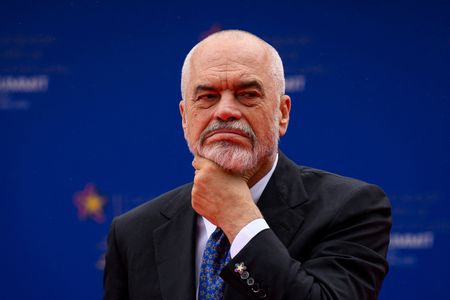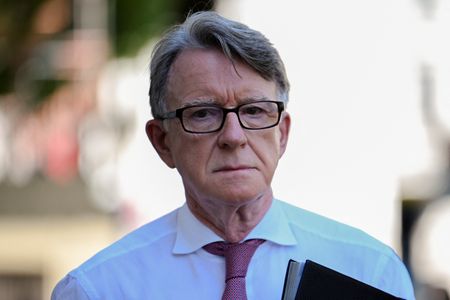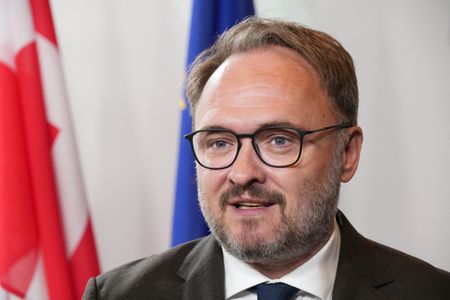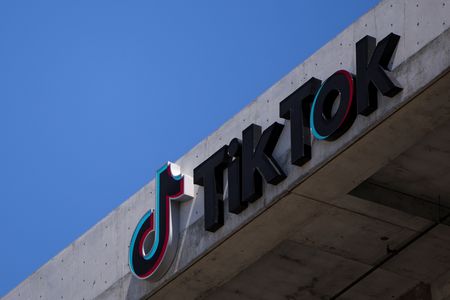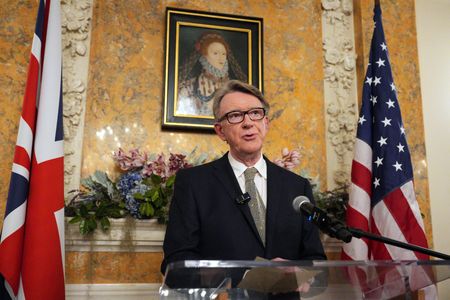By Alistair Smout and Sarah Young
LONDON (Reuters) -Britain defended its record on attracting investment on Thursday after U.S. drugmaker Merck said it was abandoning a new London research centre and a top industry lobby group warned a challenging business environment was hurting the sector.
Merck had already started building new laboratories near Kings Cross in central London ahead of an expected 2027 opening, but said late on Wednesday it was walking away from the site.
The news has added to a sense of anxiety around Britain’s life sciences sector after the country’s biggest drugmaker AstraZeneca scrapped plans for a new UK vaccine plant, and the government became caught up in a row over drug pricing.
Merck said in its statement its decision “reflects the challenges of the UK not making meaningful progress towards addressing the lack of investment in the life science industry and the overall undervaluation of innovative medicines and vaccines by successive UK governments”.
It will also have likely factored in the threat of tariffs and other pressures from U.S. President Donald Trump who wants more manufacturing to return to the United States.
Home to AstraZeneca and GSK, Britain had singled out life sciences as one of its eight priority sectors when it launched its industrial strategy earlier this year, though its sector-specific plan drew a mixed reception from industry.
“The UK has become the most attractive place to invest in the world,” a government spokesperson said, citing a Deloitte survey, “but we know there is more work to do”.
The spokesperson added that the government had committed 520 million pounds ($703 million) to a manufacturing fund to unlock billions in private investment, but added that “we recognise that this will be concerning news for (Merck) employees”.
In January, AstraZeneca blamed a cut in government support for its scrapping of plans to invest 450 million pounds in a vaccine plant in northern England.
TRUMP PRESSURE TO SPEND MORE ON US-MADE DRUGS
Drug companies in Britain have also been in long-running negotiations with the government over how much revenue from UK sales firms must return to the country’s National Health Service, and talks broke down last month without a resolution.
In such an environment, the Association of the British Pharmaceutical Industry said Britain’s ranking for FDI in the sector had fallen from second in 2017 to seventh in 2023.
“The UK is increasingly being ruled out of consideration as a viable location for pharmaceutical investment,” it said.
Britain, as well as the European Union, is under pressure from Trump to spend more on drugs from U.S. companies, with the administration still mulling plans for pharmaceutical tariffs.
Trump is due to visit Britain next week on a state visit. While Britain and the U.S. have agreed a deal on some tariffs, “preferential treatment” for pharmaceuticals under the deal is linked to Britain endeavouring “to improve the overall environment” for the sector.
($1 = 0.7401 pounds)
(Reporting by Alistair Smout; Editing by Emelia Sithole-Matarise)


